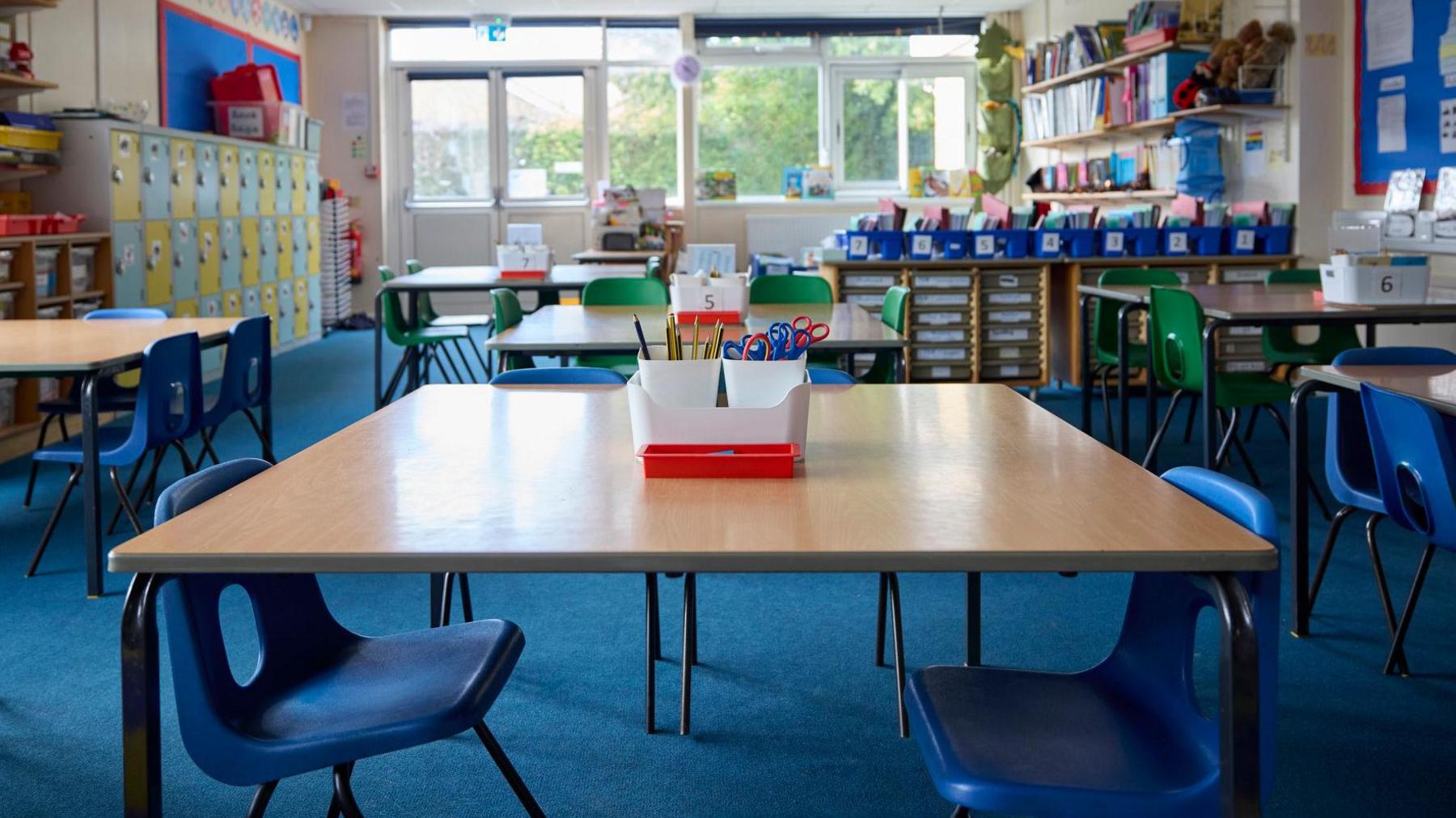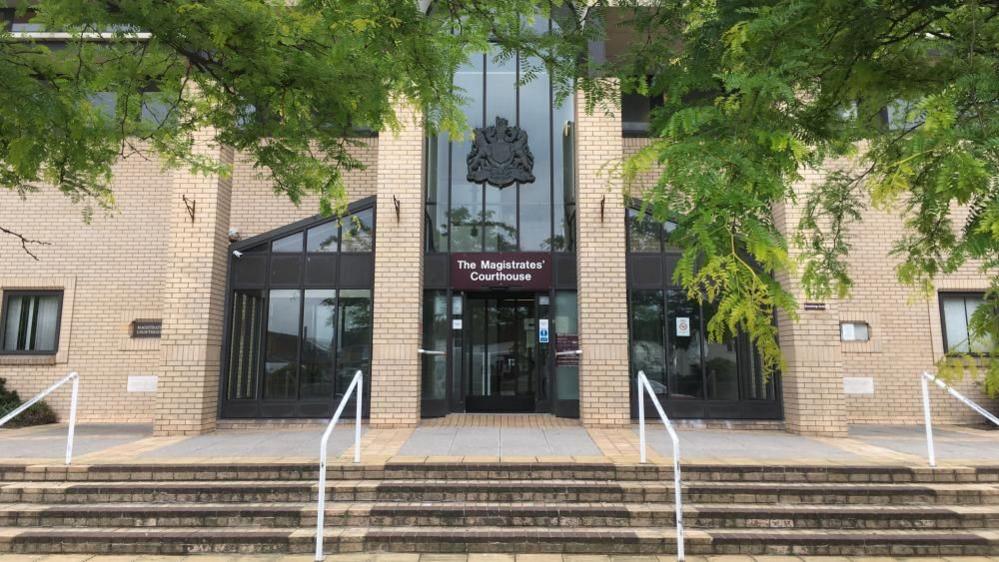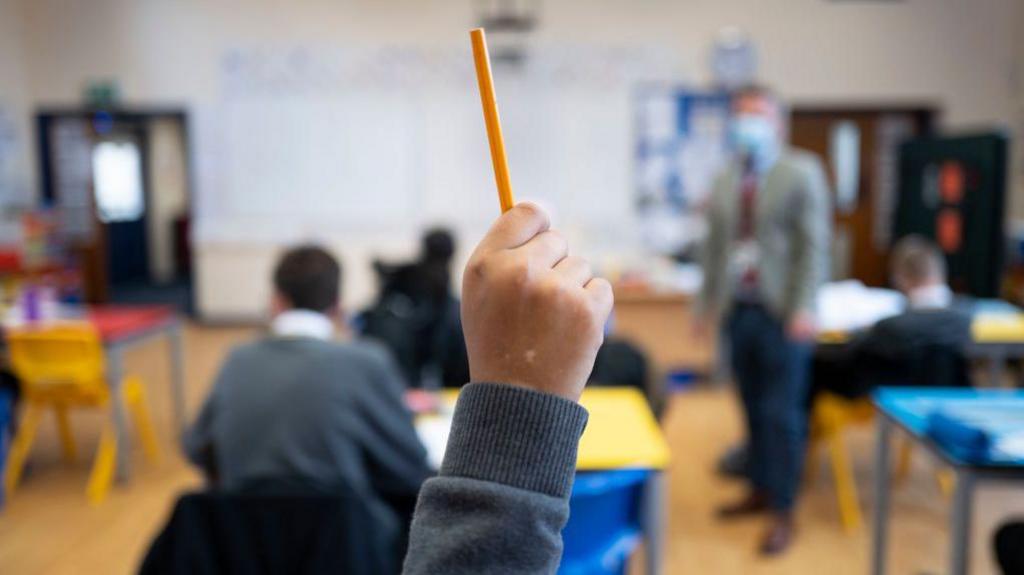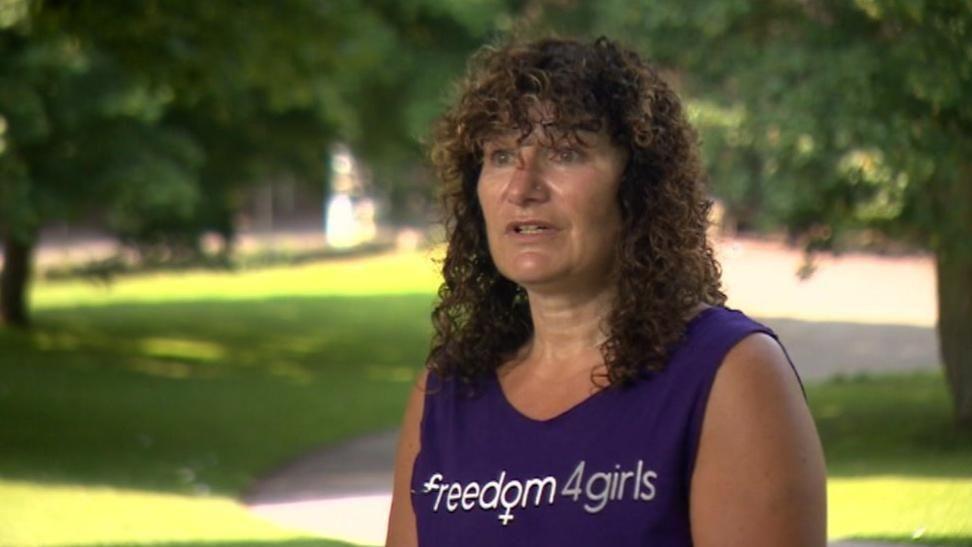The 'challenges' leading children to miss school

Norfolk has a higher rate of persistent absence from school than the national average
- Published
Persistent absence from schools is higher in Norfolk than the national average - but what are the human stories behind this?
At secondary school level, the Norfolk total, external stood at 38.1% during the 2022-23 academic year, compared to a national figure of 28.3%.
For primary schools, it was 18.9%, compared to 17.2%.
Persistent absence is defined as missing 10% or more possible sessions, equating to about seven days per term.
Last Friday, 19 parents and guardians, responsible for 11 children, faced magistrates in Great Yarmouth to explain why their child was persistently absent from school between December 2023 and July this year.
The BBC sat in seven hearings that day. We have chosen not to identify the children and the schools, and have changed the name of the parents and guardians.

Magistrates in Great Yarmouth heard cases involving 11 children aged between seven and 15 who had failed to regularly attend school
'I get scared of my son'
Alison told magistrates she was frightened of her son, now 15, who was abusive towards her.
While his attendance since September had improved, Alison said she had no control over him.
Breaking into tears, she said: "When I am not working and he wakes up in the morning he gets abusive, and I get scared of him, and I don't want to fight with him."
Alison was given a six-month conditional discharge and ordered to pay £76 in prosecution costs and a victim surcharge.

The court heard from parents who described how feminine hygiene issues has played a part in their daughters' absence
'She gets embarrassed and was sitting there uncomfortably'
Andrea's 13-year-old daughter had an attendance of 59% between 12 February and 10 May, with 39 days absent.
Paul, her stepfather, said the girl suffered with a short-term memory problem that affected her ability to learn.
"Feminine hygiene was an issue and we have spoken to the doctor about that," he said.
"The school refused to let them go to the toilet at certain times. She gets embarrassed, and she was sitting there uncomfortably."
He was was ordered to pay £56 in fine and victim surcharge.
Andrea was ordered to pay £167.

Access to toilets was mentioned in two cases
'Our daughter wasn't allowed to use the toilet'
Chris and Sue admitted their daughter had failed to attend school, missing 12 days between 4 March and 3 May.
But they said it was because the 14-year-old had been suffering with her periods and was not allowed to use the toilet to change her sanitary products.
Sue said: "I didn't want to put her on the pill because she's so young, but I had to. At the minute she's all good so it's solved the problem for her."
The court heard she had been in class 94% of the time since September.
Each parent was given a six-month conditional discharge and ordered to pay a £26 victim surcharge.
Parents in court over children's school absences
- Published20 November 2024
Boost sport to get pupils back to school - report
- Published7 January 2024
School absence fines for parents to rise by £20
- Published29 February 2024
'Ill health stopped my wife from taking the children to school'
Adrien and Hanna admitted failing to send their seven-year-old child to school regularly between 8 January and 29 March.
Hanna said: "She often produces flu-like symptoms with a runny nose and cough and often when the phlegm releases itself in a cough she feels nauseas and vomits."
Adrien added: "My wife suffers from ill health and on some occasions she is not able to take the children to school.
"I have changed my working hours. I now work nights, which allows me to do the school run both in the morning and in the afternoon."
The pair were ordered to pay a total of £254 in fine, victim surcharge and prosecution costs.

Persistent absence rates in Norfolk secondary schools stood at 38.1%
'We are doing what we can'
David and Susan's daughter, now 15, missed 37 days of school between 25 March and 5 July.
Her parents said they had begun consultations to find out whether she had ADHD.
They said problems began when the school enforced a no-phones policy, preventing her from listening to music via an earpiece, which allowed her to focus better.
The school said it had made offers of a free breakfast club, catch-up sessions and had sent four letters and offered two meetings.
Sobbing, Susan said: "We are doing what we can. I want her to be in school and I want her to do her GCSEs and do well."
David added: "There is no argument our daughter is a clever child. I was clever at school, and I went through a lot of the same things.
"I don't think the school system suits her. I just hope that when she comes to college age that structure will help her."
If you have been affected by the issues in this story, help and support is available via the BBC Action Line.
'I was not kept informed about behaviour or attendance'
The court heard one 12-year-old girl had missed 58.5 days at school between 11 March and 25 June.
Her parents, Roger and Anna, had separated nine years ago, and their younger daughter had spent some time living with her maternal grandmother.
Magistrates were told how she had Type 1 diabetes, and often vomited when her ketone levels were imbalanced, sometimes causing her to need hospital.
The court heard she was now enrolled to be home-educated, but that she would become violent, attacking her mother, grandmother and another elder sister.
The father said he had little to do with the girls’ upbringing and was not kept informed about their behaviour or attendance at school.
Magistrates ordered them to pay a combined total of £676.
'Children and families face a range of challenges'

Tina Leslie said school policies restricting access to toilets risked penalising girls needing to change sanitary products
Referring to the cases where parents highlighted school policies forbidding access to toilets during lessons, preventing them from changing sanitary products, Tina Leslie, of period poverty charity Freedom 4 Girls, said it was unfair to penalise girls for something they could not prevent.
"If you do leak, you’ve got the stigma and the name-calling. That’s why these kids aren’t going into school," she said.
Pepe Di’Iasio, general secretary of the Association of School and College Leaders, said there had to be policies in place to encourage regular attendance.
"However, what these cases demonstrate is that this issue is not always simple and that children and families face a range of challenges that can make regular attendance more difficult," he explained.
Stuart Dyer, of Norfolk County Council's education department, told the court: "It is always essential a parent ensures their child's attendance to receive their full-time educational entitlement and maximise their chances and reach their full potential."
He said in all cases, schools had contacted parents with letters and text messages and had arranged meetings; some of which were not attended by parents.
Get in touch
Do you have a story suggestion for Norfolk?
Follow Norfolk news on BBC Sounds, Facebook, external, Instagram, external and X, external.